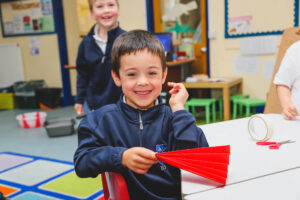Sometimes, living in the West Country can make us feel as if we are a little removed from the great cultural centres of the world. Yet, with organisations like Literature Works SW putting together the successful bid for Exeter to obtain UNESCO City of Literature status in 2019 and also securing funding from Exeter Canal and Quay Trust and Arts Council National Lottery Projects so that events like Quay Words at Exeter Custom House can continue until 2022, nothing could be further from the truth!
It seems invidious to ‘pick’ favourites from the Quay Words events page on their website but, if I were forced to choose, I would select the reading by author and illustrator Tom Mclaughlin on March 6th as a perfect family-focused event. It is going to be live-streamed from the Custom House and promises to continue the World Book Day celebrations into the weekend. For adults, my choice would have to be the reading by Quay Words Spring Writer-in-Residence, Monique Roffey, on April 30th. Roffey’s most recent novel, ‘The Mermaid of Black Conch’, won the Costa Book of the Year prize for 2020, and, as Grace Nichols says, it is ‘a magical gift of a book’. It was one that I could not put down, and one where I know the characters and situations of the novel will remain fresh in my mind days, weeks, and months after I reached the final words.
Interweaving the narratives of David Baptiste, Aycayia the mermaid and the omniscient narrator, Roffey casts a spell over the reader as powerful as the curse cast on Aycayia that she carries down through time. The novel feels, in many ways, like a reworking of a coming of age narrative where characters of all ages discover something about themselves or their relationships with others which they simply hadn’t understood before. As David says: “That mermaid woman is first time I see clearly…how to be myself, behave well.” Yet, it is so much more than this.
Roffey’s talent is to create a world which is both old and new; to depict struggles between men, between women, and between men and women as something both ancient and modern; to portray racial tensions that resonate through the centuries; to explore the conflict between self-expression and conformity, between innocence and corruption, between selfishness and selflessness. As we are drawn ever closer to the natural catastrophe which marks both devastation and rebirth in the final chapters, Roffey reminds us yet again of the power and beauty of the natural world and our role as guardians of it, as well as the powerful legacy of love as the survivors climb ‘up and out and into’ their new lives.
Miss Bullocke












